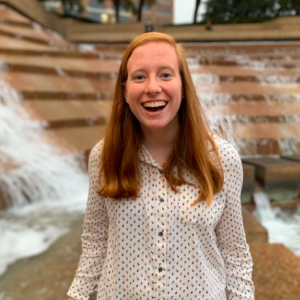Foster Care from a Case Workers Perspective
“When I tell people what I do for a living, I usually receive responses like, “Wow, that must be so hard” or “I’m glad you’re able to do that job. I’d never be able to do it; it’d just be too sad for me.” In some ways, these people are right. Foster care is hard and heavy. But oftentimes, people on the outside and even some on the inside of foster care fail to see the beauty that can come out of the hard and heavy. I think it’s time we talked about both sides of foster care.
When I started at Anna’s House, I was 22 years old and three days post-college graduation. I foolishly thought I had prepared for everything; I thought my classroom education and limited involvement with kids from hard places was enough to prepare me for the role I was stepping into. Boy, was I wrong. I had heard stories of horrendous cases of abuse and neglect and thought that that was the worst I’d be seeing. But as I started and continued in this role, there were so many hard and heavy things that often go unnoticed by others. These were the things that I was unprepared for: things like children throwing countless tantrums because they don’t know what to do; kids kicking and hitting because they’ve never had to articulate and name emotions so all they can do is be aggressive; foster parents telling me, in the midst of a child’s breakdown, that they just don’t know if they can do it anymore; constant frustration from foster parents as they system begins to show its flaws.
This is the hard side of foster care, sometimes seen or unseen. But from destruction or devastation comes growth and beauty. This beauty is seen in the general sense: foster parents providing love and support to the most vulnerable people when they need it the most, knowing that the placement is most likely temporary. Absolutely! Beauty is also found in the specifics within the general: foster parents invested in services for children so they can grow and succeed; foster parents bridging with biological families and cheering them on, wishing and hoping that the children they care for and love so deeply can go back home. The best part of my job is when foster parents tell me about the little things: this child said a complete sentence today, or that child became upset and told me she was angry because [blank], or bio mom completed this or that service today and did really well at the visit. These may seem like small things to some, but to children, foster parents, and case workers, these small things are worthy of trophies.
Being a case worker is a difficult task. It is my job to walk with families as they embrace the difficult and the beautiful. I grieve with my families in the valleys and rejoice with them on the mountaintops. One thing that makes this job easier is the hope I have. This hope is not placed in the flawed system or in a family’s ability to care for a child. This hope is something greater and is centered in my faith in God. There is no possible way I’d be able to do this job by myself, and I think our families understand that as well.
It takes a lot to be involved in the fostering process, whether that be through case work or as a foster parent, and the journey is often filled with missed expectations and misconceptions. The hard days are hard but the good and beautiful days make it all worth it”.
- Reagan Buster, AHF Care Specialist

